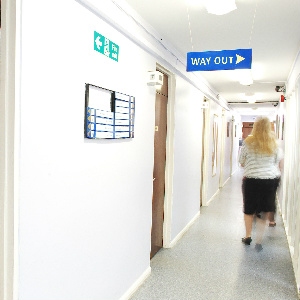Exclusive Accountants are receiving an increase in enquiries from GP practices looking to merge amid recruitment problems and a ‘funding squeeze’, with the measure often a last resort to avoid closure.
Accountants have told Pulse that MPIG withdrawal, PMS changes and a ‘constant squeeze’ on funding has left practices in a position where they are forced to continue giving up their independent status and join other practices.
LMCs have also reported a similar trend, with some practices seeing it as the ‘only option’ to avoid closure.
The reports come as Pulse launched its campaign to Stop Practice Closures, in which GP leaders have cited recruitment issues,cuts to MPIG and PMS funding as the main factors for upwards of 100 practices closing or potentially closing.
Last year GP leaders warned that GP practices would be forced to merge to survive at the Pulse Live Conference in Birmingham, while health minister Dr Dan Poulter told MPs in March that practices at risk of closure as a result of MPIG funding withdrawal should be ‘looking to help themselves’ by, for example, working together at scale.
Keith Taylor from Newcastle-based firm BW Medical Accountants said merging ‘is very much on people’s agenda at the moment’, particularly among smaller practices.
He said: ‘They are looking at preserving their financial position amid the constant squeeze on income and they are hoping to achieve economies of scale within a larger entity.’
‘Obviously we are embracing any change they want to make as long as it is for the right reasons and they are working with the right people. I think it is a fairly sensible decision to make if you are a single-handed GP struggling under the new funding regime. Obviously then a merger is a better option rather than a closure.’
Baker Tilly head of medical services Bob Senior said changes to funding such as the MPIG withdrawal was behind the trend.
He said: ‘Certainly we are seeing an increasing number looking at this and being aware that as very small independent practices life is going to get very difficult going forward. They’re thinking that financially we need to be doing something here, because by the time we get to the end of 2020 the correction factor will have completely gone and we will really be facing quite stark differences in funding compared to larger practices.’
LMCs have seen a similar a trend. Bedfordshire and Hertfordshire LMC chief executive Dr Peter Graves, whose local area is being severely hit by the GP recruitment crisis, said that for some practices merging was the only option to avoid having to close.
He said: ‘I know of five practices, out of 235, which are stretched enough to be in talks with neighbouring practices about merging to hopefully prevent closure. In April we carried out a workforce survey, at an 80% response rate, showing that 30% of practices are carrying a GP vacancy.’
Related stories
Pulse launches campaign to Stop Practice Closures
Practices given funding to offer £10,000 ‘golden hellos’ to new GPs
In East Anglia, four mergers have already taken place since the start of this financial year, according to NHS England’s local area team. Chair of Norfolk and Waveney LMC, Dr Tim Morton, said: ‘Smaller practices see themselves as increasingly vulnerable, certainly in relation to recruitment.’
‘For a large practice if a partner resigns you take it on the chin and you work through it. For a very small practice losing a partner is devastating. Gone are the days when it has been easy to recruit partners and I think this is one of the main drivers for, certainly the smaller practices, to seek security in larger arrangements.’
And some practices that are merging are looking to create ‘super practices’, which are able to provide more services to patients at scale, according to Aaron Swinton, medical accountant at Sandison Easson & Co in Wilmslow. But he said many of these clients had not moved into the same premises as these were not available.
He said: ‘Funding for a super premises, it is not something that is going to happen overnight. Doctors are discussing what they can do going forwards because with all the funding changes, including the pension changes, it’s all coming out of doctors’ pocket.’
‘At the end of the day, they’ve got mortgages to pay and they’ve got to make ends meet so they are looking at various options, and a merger is one of those.’
Healthcare partnerships-specialist accountant Luke Bennett, who is based in Cornwall, said consolidation would happen over time, although many practices may choose to wait for ‘natural wastage’ before closing branch surgeries because of a ‘reluctance to make people redundant’.
He said: ‘When you start to think well if we are going to save costs, where are those costs coming from. Unless you’re closing a surgery then really you are still going to need the same number of nurses, you are still going to need the same number of receptionists.’
However GPC deputy chair Dr Richard Vautrey said that although the consolidation of GP practices was inevitable amid the squeeze on funding it could have a negative impact on patients if it led to the closing of branch surgeries.
He said: ‘Practices are increasingly looking at how they might work in bigger grouping with some doing so through networks whilst others are merging in to larger practices. It is increasingly hard for small practices to cope with the increased workload and bureaucracy that NHS management and regulatory environment places upon them and working in bigger units can help deal with this.’
‘However patients value small practices and the continuity of care that a practice offers when it is embedded in the local community and so it is essential that as practices get bigger, or work in bigger networks, they retain this essential characteristic that has made general practice so successful.’

Pulse October survey
Take our July 2025 survey to potentially win £1.000 worth of tokens















